#british tc
Explore tagged Tumblr posts
Text
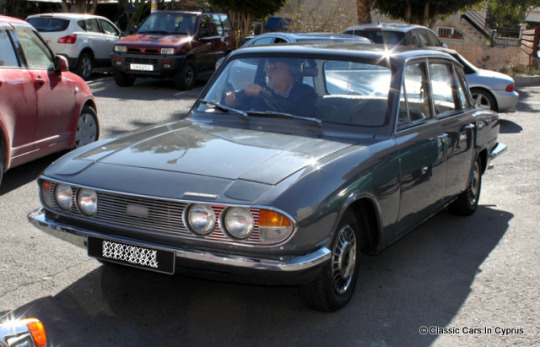
Triumph 2000 TC
#Triumph#Triumph 2000 TC#British#England#English#UK#Classic Cars#Vintage Cars#Cool Cars#Old Cars#Oldtimer#Cars#Autos#Motors
136 notes
·
View notes
Photo
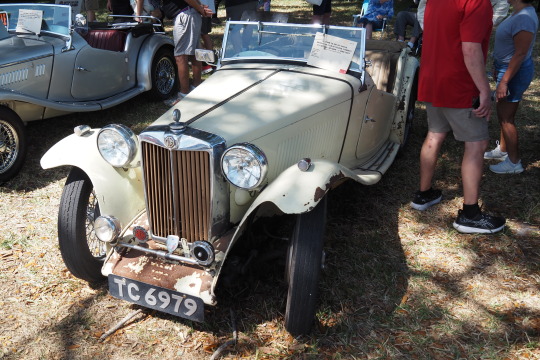




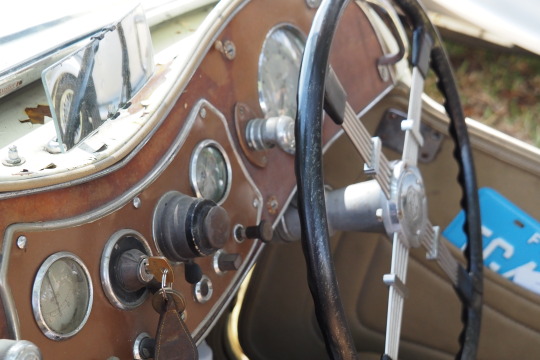

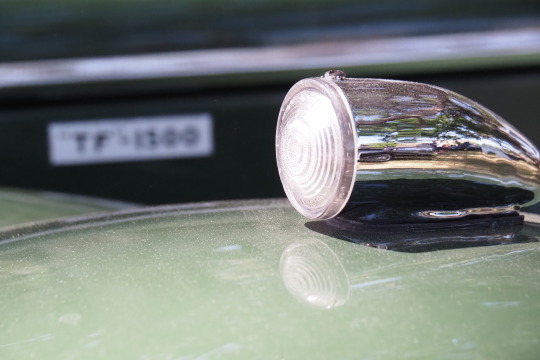

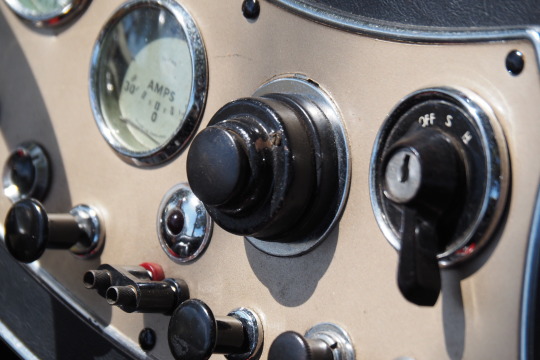

British cars show, Sanford FL. MG T-series goodness.
9 notes
·
View notes
Text
for a british columbian there is no greater joy in life than watching first blood and saying hey ive been there oh my god ive literally been there. ive been there too woahhh ive been there thats crazy ive beeen there
#and then saying its actually hope british columbia not washington. um actually hope is in canadaaa ☝️#tc
1 note
·
View note
Text

Outlier Volume 3: Survivor Guilt featuring reprints of the strip from the 2000AD stable!
Story & art by T.C.Eglington + Karl Richardson.
0 notes
Text
Antarctica Dream Adventure 8 - Drygalski Fjord
This is our third day at South Georgia Island in our Antarctica Dream Adventure. South Georgia is the British Overseas Territory of South Georgia and the South Sandwich Islands. As we progress on the expedition we are told that areas of South Georgia are being closed due to the detection of birds with avian influenza and to help reduce the spread of the disease. The expedition leader is…
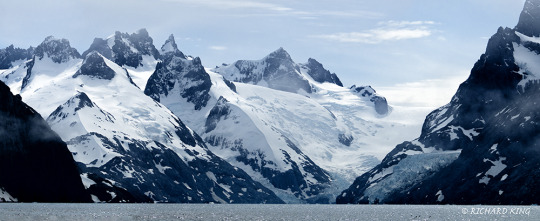
View On WordPress
#Antarctica#SnowPetrel#SouthernFulmar#SouthGeorgia#wildlifephotography#Z100-400S#Z24-70S#Z8#Antarctic Prion#Antarctic Shag#Antarctica Dream Adventure#British Overseas Territory#Drygalski Fjord#Fjord#glaciers#Iceberg Alley#Icebergs#Mountains#NIK 6 Silver Efex#Nikkor 24-70mm f/4 S#Nikkor Z 100-400mm f/4.5-5.6 VR S#Nikkor Z TC-1.4x#Nikon Camera Systems#Nikon Z 8#Richard King Photography#Snow Petrels#South Georgia and the South Sandwich Islands#South Georgia Island#Southern Fulmar
0 notes
Text
PROGRAMAÇÃO DE CORRIDAS DO FIM DE SEMANA DE 08-09\04+SEGUNDA FEIRA(10\04\2023)






Sabado-08\04\2023
01:30-GTWC AUSTRALIA-BATHURST-CORRIDA 1\RACE 1
youtube
07:45-GTWC AUSTRALIA-BATHURST-RACE 2
youtube
10:00-FRANCE HISTORIQUE GRAN-PRIX-PAUL RICARD
youtube
13:45-Super turismo RS-GUAPORÉ
youtube
17:30-Nascar Truck Series-Dirt Bristol-HEAT 1-Twitch.Tv
17:45-Nascar Truck Series-Dirt Bristol-HEAT 2-Twitch.Tv
18:00-Nascar Truck Series-Dirt Bristol-HEAT 3-Twitch.Tv
18:15-Nascar Truck Series-Dirt Bristol-HEAT 4-Twitch.Tv
19:00-Nascar Cup Series-Dirt Bristol-HEAT 1-Twitch.TV
19:15-Nascar Cup Series-Dirt Bristol-HEAT 2-Twitch.TV
19:30-Nascar Cup Series-Dirt Bristol-HEAT 3-Twitch.TV
19:45-Nascar Cup Series-Dirt Bristol-HEAT 4-Twitch.TV
21:00-Nascar Truck Series-Dirt Bristol-Bandsports
09/04-Domingo
04:00-FRANCE HISTORIQUE GRAN-PRIX-PAUL RICARD
youtube
07:10-FFSA TC-Nogaro-Corrida 1\Race 1\Course 1
09:10-Alpine Elf Eurocup-Nogaro-Corrida 1\Race 1\Course 1
youtube
10:25-FFSA GT-Nogaro-Corrida 1\Race 1\Course 1
youtube
12:40-TC FRANCE-NOGARO-Corrida 2\Course 2\Race 2
youtube
20:00-Nascar Cup Series-Dirt Bristol-Bandsports \TWITCH.TV (site do Bandsports)
21:00-Nascar Cup Series-Dirt Bristol-Bandsports
#programação#tv & streaming#nascar#nascar cup series#nascar truck series#british gt#FFSA GT#GTWC AUSTRALIA#FFSA TC#Youtube
0 notes
Note
Margaret Hilda Thatcher, Baroness Thatcher, LG, OM, DStJ, PC, FRS, HonFRSC (née Roberts; 13 October 1925 – 8 April 2013), was a British stateswoman and Conservative politician who served as Prime Minister of the United Kingdom from 1979 to 1990 and Leader of the Conservative Party from 1975 to 1990. She was the longest-serving British prime minister of the 20th century and the first woman to hold the position. As prime minister, she implemented economic policies that became known as Thatcherism. A Soviet journalist dubbed her the "Iron Lady", a nickname that became associated with her uncompromising politics and leadership style.
String identified: agat a Tatc, a Tatc, G, , t, C, , C (é t; 13 ct 1925 – 8 A 2013), a a t tata a Cat tca a t t t g 1979 t 1990 a a t Cat at 1975 t 1990. a t gt-g t t t 20t ct a t t a t t t. A t, t cc c tat ca a Tatc. A t at t " a", a ca tat ca acat t cg tc a a t.
Closest match: Muscardinus avellanarius genome assembly, chromosome: 21 Common name: Hazel dormouse

#tumblr genetics#asks#genetics#margaret thatcher#rodents#mouse#hazel dormouse#introducing my shithead son his name is Margaret Thatcher
3K notes
·
View notes
Text
Okay points from an Indian girl.
There are flights from Amritsar to Delhi and from Delhi to pondicherry, it should've taken less than 1 day, there were already at the airport. Probably even cheaper cheaper than train tickets.
Also you don't just get on a train without a ticket, they don't let you in, specially in cabin seats mostly because there are rarely any embty seats and if you do the prices are insane because it's the price of the ticket and the fine of boarding without ticket (you can bribe the tc though). The whole train sequence felt like one of those "incredible India" tourism ads (if you know you know) i can believe seeing an elephant but a tiger???? Nah they were shot to almost extinction by the colonists. You simply won't see one near a train track.
Also how long is thier visa for???????
As an Indian with a habit of visiting old castles, temples here, it's absolutely wild to think that not only did they find a temple that was fully unguarded but also unregistered with the heritage department.(There is usually a fence at least even if they are abandoned ) I also can't believe the guide brought 2 BRITISHERS and just left them at the temple😭😭. I bet the police would give him a reward for ratting them out.
So many crimes😭😭😭 really liked the episode mostly because it felt like vicariously living through someone else, there is a fort near my college and we simply weren't allowed there for 6-10 years, it was structurally unstable or something and recently it has been partially opened and i really really really want to go into forbidden area. But i will get arrested for trying.
38 notes
·
View notes
Text
Thinking About QL Fandoms and Markets For Indian Queer Media
Alright, ::rubs hands together::, let's see if this old auntie can get the link history of this thread straight first.
@impala124 originally wrote in an ask to dear @lurkingshan about Shan's thoughts on a developing fandom for Indian queer media.
Shan subsequently asked a few of us on the internet, brown Asian and/or otherwise, to weigh in, which @starryalpacasstuff did here. Starry's piece has a few great reblogs with media resources that everyone should scurry to check out.
The inimitable @neuroticbookworm then decided to show us her literary Tae Bo skills and dropped an absolute MONSTER of a must-read regional media and industry analysis here. (Let me emphasize that this is a MUST-READ PIECE if you're interested in Indian media.)
I'm going to use NBW's piece as a reference throughout my weak-ass response tea here, because she covered almost everything that needed to be said about why there ISN'T a robust or developed fandom on the internet for Indian queer media. So go read that first, and if you forget to click back here, it's all good, because I'm just gonna offer some unorganized macro-level thoughts at this point.
****
I'd like to first amplify a number of themes that @neuroticbookworm made clear in her piece about the "media industry in India." I'm only putting that phrase in quotes not because NBW wrote it (she didn't), but because it's a wholly inaccurate phrase.
1) INDIA IS *NOT* A SINGLE, UNIFIED CULTURAL MONOLITH. Remember your early social studies classes on early civilizations? The Aryans, Harappa, Mohenjo Daro? Those specific civilizations arose in the north of the Indian sub-continent, and not a lot of social studies spaces outside of Indian classrooms give love to the other regional areas in India -- like, say, all of South India, hello -- that belong to other civilization definitions.
To be grossly overgeneral, ancient civilizations in the northern subcontinent were known as Aryan civilizations, while those of the southern subcontinent were known as Dravidian civilizations. We see these differences today in the food we brown people eat, and ESPECIALLY in the languages we speak. Tamil (a Dravidian South Indian language) couldn't be farther away from Hindi (a North Indian language emanating from Sanskrit).
2) While the prominent political nationalists of India (😐) would like to have you believe that all Indians are monolithically similar -- or rather, SHOULD be monolithically similar by way of all Indians speaking Hindi, consuming Hindi media, and erasing religious diversity (🤬) -- nothing could be farther from the truth of our incredibly diverse and complicated subcontinent. We Indians are regionally, and therefore culturally, diverse in a great myriad of ways, way beyond our food, language, and religious preferences.
[For my non-Indians and non-Asians reading this, think about the two dishes you see the most on Indian restaurant menus outside of India. Chicken tikka masala and tandoori chicken, right? That's typical "Indian" food to the untrained eye. CTM is a British dish borne from immigrant South Asian chefs; and tandoori chicken was created by North Indian Punjabis. My own Indian origins are half-half (lah), I'm half-South and half-North Indian (with some SE Asia thrown in there, boleh!). My brain fucking freezes when I speak to someone who thinks the extent of "Indian food" is CTM and TC, and I have to explain, for the millionth time, the basics of the incredible array of South Indian vegetarian food that I grew up eating and loving.]
Thus, what I'm trying to say is, when we say the word "INDIAN," there are some questions that a curious listener should be tuned into asking to get specifics about just what kind of "India" or "Indian" the speaker is speaking of. I'll often get the question, "but WHERE in India are your parents from," from tuned-in Asians, who want to know specifically about my regional background.
VERY SO OFTEN IN POPULAR DIALOGUE ABOUT "INDIAN MEDIA," THE UNDERLYING ASSUMPTION OF THE CONVERSATION IS THAT THE SPEAKER IS ONLY SPEAKING ABOUT HINDI-LANGUAGE MEDIA, WITHOUT RECOGNIZING THAT REGIONAL AND/OR NON-HINDI LANGUAGE MARKETS MIGHT BE MAKING MEDIA, EVEN POPULAR MEDIA, FOR THEIR SPECIFIC REGIONAL MARKETS AND AUDIENCES WITHOUT AS MUCH OF A GLANCE TO THE DOMINANT HINDI-SPEAKING NORTH.
NBW says this brilliantly in her incredible piece, which delineates the major differences in the MANY regional and even sub-regional media markets of India, that produce a VAST array of media in the languages of the regions, markets, and audiences that this media serves.
On a personal note, when I was a kid, I only watched old South Indian films subtitled in English that my South Indian dad found. My North Indian mom watched them with us happily. We didn't do Bollywood in my house because frankly, dad hated those films and wasn't into them. Now that I think about it, it's probably because those Hindi films didn't bear a single resemblance to the cultural and life he lived growing up in South India.
3) Alright, so we have established that in terms of media, to speak about "Indian media" as a monolith is utterly incorrect, and just, go back to NBW's piece to get an excellent analysis of the details of that situation.
NBW does a bang-up job highlighting important pieces of regional media throughout her post, and like I mentioned before, there are multiple lists of media in the reblogs Starry's piece linked above ( @silverquillsideas notes in her reblog of Starry's piece that two important films come out of the state of Bengal, a market that us Indians should certainly pay attention to in particular.)
I therefore might posit that there might not actually be a unified "fandom for Indian queer media."
IT IS CLEAR from the reblogs of the various pieces that we've written over the last few days, that us Indians who love QLs certainly don't INHERENTLY know, universally, about ALL the queer media, across the subcontinent, in the MANY languages we speak, that has been made.
We have a lot of learning to do across our own regional identities.
I'd argue that, instead, from an organic growth perspective, that regional media markets in India would respond to THEIR OWN AUDIENCE'S AND MARKET'S DEMANDS and create queer media WITHIN THEIR OWN REGIONS
a) if their market(s) demanded it, AND b) if there was either pre-production funding, or a guarantee of net revenue from the airing of such media.
A fandom doth not create media.
It is filmmakers that create media.
And those filmmakers need
✨ MONEY ✨
✨ MONEY ✨
✨ MONEY ✨
to make media.
Some regional markets will, by nature, be willing to take risks on a filmmaker's desire to make queer media. Those projects could succeed, or could fail. Badhaai Do is one of the best examples of a Bollywood breakout piece that gained even some international attention, and certainly attention ACROSS the subcontinent.
But I want to emphasize this point about
MONEY.
The question that we're pondering is, why isn't there a more prominent fandom for Indian queer media and/or QLs?
@twig-tea made note, in her reblog of Starry's original piece, about the importance of accessibility and subtitling, an important note not just for international audiences, but for regional Indian populations that don't speak the same language(s). Accessibility allows fans to watch the media of their own markets, and markets outside of their boundaries.
But even bigger than this is, before we even get into accessibility, is: the filmmakers need money to spend to MAKE projects, and in an ideal scenario for themselves and/or their studios, they then need to (hopefully) make a PROFIT to demonstrate a sustainable desire and demand for the media they're producing, a profit that could hopefully be re-invested into more and new queer media projects.
Let me not get into all the obstacles in which filmmakers, queer or otherwise, might run into issues with production fundraising for a queer-centered project. We Indians know about our conservative, often violent, obstacles.
NBW does a fabulous job in her piece discussing what COULD be made by way of queer media that COULD gain a stronger cultural foothold over time across the subcontinent.
4) A fandom, most often, develops as a response to media already created. A fandom, HOWEVER, *IS*, often, in today's digital age, often recruited to fundraise for projects they want to see! GoFundMe, right?
I think it was @impala124 in a reblog that mentioned that there's already a "market" for Indian QLs. But we've established now that there are actually many unconnected regional media markets in India that can't be assumed to be glommed together.
If a fandom WANTS to see a particular kind of media, in their own specific regional market, it's certainly well within its rights of speech to create internet buzz for it.
But I think we as fans also need to take responsibility for a better understanding of the economics of media creation, and to be patient as queer media is produced across the subcontinent, and to simply do our best to hype it up on the internet when we can, so that commercial sponsors and potential production funders can then pay attention to what us fans want -- and what we're willing to pay for.
And let me be honest, this is a *tremendously difficult proposition* for a field of media that's just really small against the giant, mainstream, well-funded media markets of India. And this field of queer media would be guaranteed to face crippling and disgusting conservative criticism as it gains more of a prominent cultural foothold -- as we are seeing in South Korea literally at this very second.
Looking on the economic bright side: we see in Thailand and in Japan that QLs make MONEY. Shit, not just Japan being into Japanese QLs, but also, Japan is so into Thai QLs that the major Thai channel and studio, GMMTV, has a distribution deal with the Japanese channel TV Asahi to air Thai QLs in Japan. MONEY, BABY! INTERNATIONAL DOLLAS. Great Sapol, of the QLs Manner of Death and Wandee Goodday, just wrapped a stint in a mainstream Japanese drama, and I'll assume that's because he's hotttt and talented gotten a lot of attention in Japan from his previous Thai QL work, as well as his lengthy resume in Thai mainstream media.
The hunger for QLs is there in these two major national markets, and the Thai and Japanese audience markets have proven that the demand for content for these countries can be economically fruitful. So the media markets of these two (much smaller than India) countries are pumping ever more money into production, and filmmakers are responding with more QL content than ever.
We have not even begun to contemplate reaching that tipping point in India, across our regional markets, yet. Again, NBW offers some creative paths forward that will take time to develop.
Fuck, I mean. Imagine Bollywood looking towards Thailand and its branded pair formula as an inspiration to develop queer media. (IMAGINE.) Get two super popular Bollywood actors together in a branded acting coupling/partnership. Shah Rukh Khan and Saif Ali Khan doing India's version of What Did You Eat Yesterday?. In aprons! Making keema and rajma and chapatis. ShahSaif (SaifShah?!). KhanKhan. How would that go down?
It's a proven economic formula in Thailand. And that's just one example. We're well familiar, separately, with how Japanese QLs gain traction in bigger media spaces for its audiences, with media being adopted for the screen, as they mostly are, from popular yaoi and yuri mangas.
India and its regional media markets need some proven economic formulas within its regional markets to prove that queer media can gain culturally important footholds across the mindsets of various audiences -- and to prove that those footholds can produce profits.
The fandom element in this is that the regional fandoms, while creating buzz, could also prove to be important economic factors to a regional queer media industry being able to survive, and maybe even thrive.
Assuming that I am speaking to a mostly progressive group of fans here: we can only hope for this, and we must support the queer media that the subcontinent currently produces, IN *ALL* THE LANGUAGES (!!!!), to demonstrate to producers that Indians, wider South Asians, and even non-South Asians, WANT THIS MEDIA. We want it, we SHOULD want it, and damn it, we should SPEND OUR MONEY on it, to show our appreciate to the filmmakers taking risks to make this media.
I'm out! I need a chai and a samosa and a dosa.
#indian media#indian queer media#indian ql#bl industry#fandom#fandom things#fandom meta#khankhan#MAKE IT HAPPEN
53 notes
·
View notes
Text
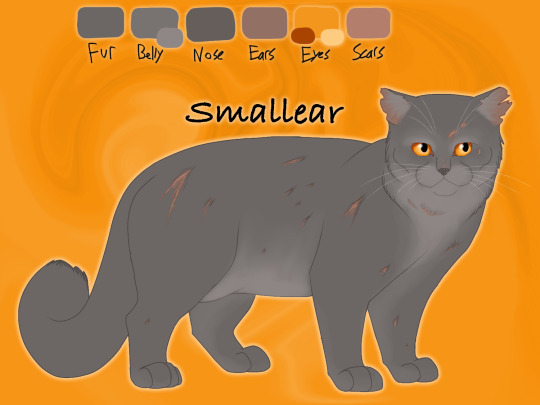
Finally finishing off every TC design for the first series, it's Smallear. :P Fitting that he's last, he kinda sucks. XD
You can find the reverse side of his design here.
For his physical design, Smallear is described as a tom with very small ears and a nick in one ear caused by an owl (that's the longer jagged one on his left (our right) ear)). I based him loosely on a British shorthair cat, since they're gray and can have pretty small ears, though he's definitely not a purebred. He's got a nice stocky build as a result, though I imagine him losing a lot of that muscle mass and being a rather sad, scrawny-looking mess by the time we see him in TPB.
For his pattern, Smallear is described as a gray tom with amber eyes. I gave him his grandson Brackenfur's shade of amber eyes, and just went very basic with his colors and markings.
Overall, I'm not super happy with how he turned out, but oh well he's done. XD
#warriors#warrior cats#erin hunter#wc#Smallear#Warrior#Elder#The Prophecies Begin#Super Edition#Bluestar's Prophecy
17 notes
·
View notes
Text
my mother just flung her tablet at me like "READ THIS" and are you joking
It turns out that Cruise has been saving cinema in one way or another for more than two decades. Long before Hollywood was on the brink of collapse in the aftermath of the pandemic, there was a small British film that was struggling to get funding. Guy Ritchie’s directorial debut, Lock, Stock, and Two Smoking Barrels had been independently produced for less than £1million in 1998, but no one wanted to distribute it. Following a card sharp who gathers his friends together to pull off a dangerous heist to make good on a debt to a notorious crime lord, it’s a fast-paced, fast-talking comedy full of the kind of stylistic flourishes that became the director’s trademark.
For potential distributors, however, it was unsellable. Reflecting on the post-production period, producer Matthew Vaughan told Mark Kermode that the best deal he could get was for the film to go straight to VHS. After some pleading, he got a deal that would have put the movie in only two theatres in the UK. In a last-ditch effort to save the movie, he called up one of his producing friends in the US.
“I rang up Trudie Styler and I said, ‘Trudie, do me a favour,’” He remembered. “‘Can you get Tom Cruise to come to this buyers’ screening in America?’ And she went, ‘Are you mad? You use stars for the premieres.’ And I said, ‘No. There’s never going to be a premiere of this.’ And Cruise, to his credit, turned up in this tiny little screening room on the Sony lot, and it was hysterical because you had all these mid-level executives sitting there, and Cruise walked in. He saw them all sit up and pay attention, all getting on their phones, and suddenly, all these senior executives joined the screening. At the end, Tom got up in front of everyone and said, ‘This is the best movie I’ve seen in years, you guys would be fools not to buy it.’”
I am thoroughly Meh on Lock, Stock, but I will drop everything to watch Rock N Rolla which is an all-time favorite and would not exist if not for Lock, Stock doing well.
jfc thanks TC I guess?????????
27 notes
·
View notes
Note
Timing again!!
they planned their pap walk from the pj yesterday for the release today of her vogue cover. She needed that attention so people would read the vogue article and search for clues about her couple in that itw. And that article is not journalism is just an advertisement for her and her brand. Lucky TC has been mostly kept out of that rubbish. But they’re clearly paying him for her rebrand. Because if you’re soo sooo private (as to wear a mask next to her) why would you sell your name out to that family?



British Vogue cover where he and his team allowed her to talk about him non stop
Yes dm already had the photos it's clear

35 notes
·
View notes
Text
A controversial pipeline meant to transport natural gas across northern British Columbia has passed a major milestone. On Monday, TC Energy announced it has finished installing pipe on its Coastal GasLink pipeline project. "That means that all 670 kilometres of pipe has been welded, coated, lowered into the trench, rigorously tested, and backfilled," the company said in a release. First planned more than a decade ago, the pipeline will carry natural gas from near Dawson Creek in the province's northeast to a massive LNG Canada processing facility in Kitimat on the West Coast, where it is to be liquefied and shipped to Asia, opening up new markets for Canadian producers. [...] While the pipeline has buy-in from several elected First Nations bands along its route, it has faced high-profile opposition from a group of hereditary chiefs who assert that Wet'suwet'en territory has never been ceded to the federal government and that pre-colonial governance structures are still responsible for the land. In November 2021, 29 people were arrested over two days of police action in Wet'suwet'en territory as RCMP moved in on a resistance camp, known as Coyote camp, that had been occupying a key work site for Coastal GasLink, a number of whom are now facing charges of criminal contempt.
Continue Reading.
Tagging: @politicsofcanada
123 notes
·
View notes
Text
MISSING PERSON
> surprised this hasn’t made its way to TC tumblr.
Jay Slater — 19 years old — went missing after a vacation to Tenerife, last seen 17th June. Help from the British police was refused and the Spanish police ended their search after only 2 weeks.
No further leads were made in 2 weeks, it’s only known that he most likely went missing in the mountains with no water and 1% on his phone. There are no confirmed leads. It’s suspended that Slater was involved in a drug ring, due to the £30k GoFundMe that was created, with no context for what it’d be used for.
No information has been given by the family in 6 days.

27 notes
·
View notes
Text

Outlier Volume 2 - Dark Symmetries featuring more reprints of this excellent story from 2000AD - given away free with Judge Dredd Megazine No.393, March 2018.
#outlier#comic books#british comics#2000ad#judge dredd megazine#karl richardson#tc eglington#supplements
0 notes
Text
Antarctica Dream Adventure 6 - Grytviken, Old Whaling Station
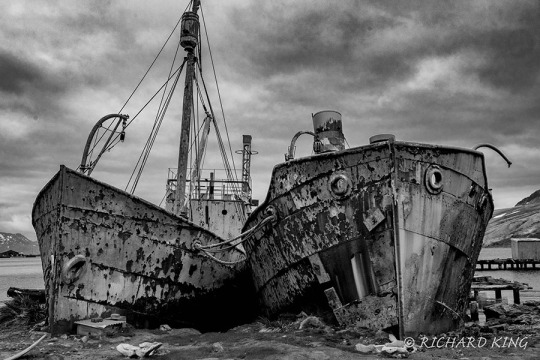
View On WordPress
#Antarctic Shag#Antarctica Dream Adventure#Antarctica Expedition#British Overseas Territory#Capital of Territory#Ernest Shackleton&039;s Grave#Finest Natural Harbour in South Georgia#Frank Wild&039;s Grave#Fur Seals#Grytviken#Grytviken Church#James Caird Replica#King Edward Point#King Penguins#NIK 6 Silver Efex#Nikkor Z 100-400mm f/4.5-5.6 VR S#Nikkor Z TC-1.4x#Nikon Z 8#Old Whaling Station#Reindeer#Richard King Photography#Sir Ernest Shakleton#South Atlantic Ocean#South Georgia and the South Sandwich Islands#South Georgia Island#South Georgia Island and Antarctica Expedition#Wildlife of South Georgia#www.fulltimervingwiththekings.com#www.mothernatureimages.com#www.richardkingphoto.com
1 note
·
View note